The main work of the life of Peter Kleinmichel
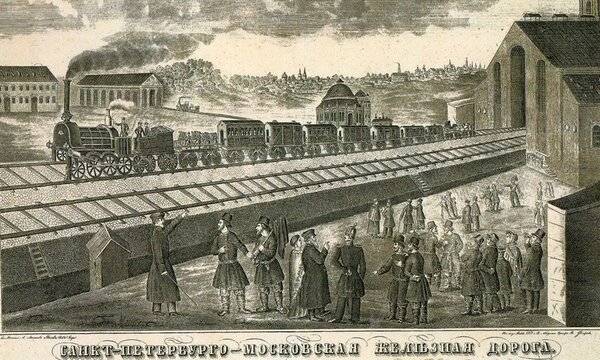
Article P. A. Kleinmikhel. "Steel ram of sovereign will" we talked about the origin of this man, his family, the beginning of the service and how the decision was made in Russia to build a railway between St. Petersburg and Moscow. Today we will continue this story.
At that time, two railways were built in the Russian Empire. The first was Tsarskoye Selo - a single-track railway track only 27 km long, leading from St. Petersburg to Tsarskoye Selo. The movement on it was started in October 1837.
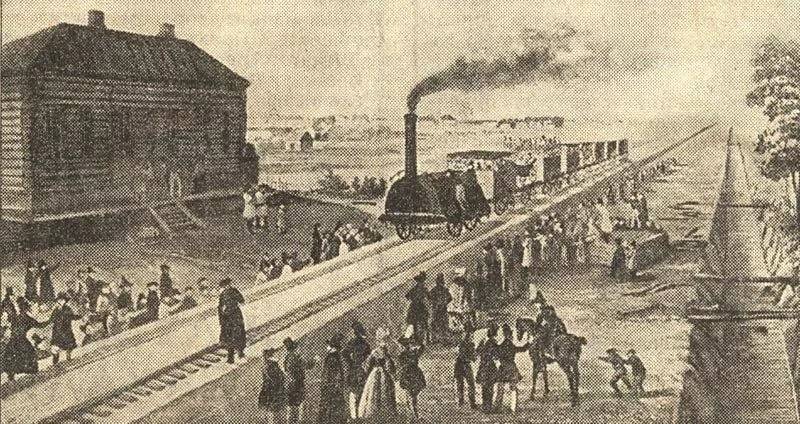
The second was the Warsaw-Vienna Railway, the movement of which began in 1845. Its length on the territory of the Russian Empire was 308 versts (328,57 km), and the rail gauge was set according to the Western European standard - 4,75 feet (1 mm). It was connected to the Austrian Krakow-Upper Silesian Railway on April 435, 1.
"A lot of plans"
Now the railway was supposed to connect the two capitals of the Russian Empire - the old and the new. The length of the new highway was 604 versts (644,35 km), and it was decided to immediately build it as a two-track one.
P. A. Kleinmichel did not have the slightest idea about the railway business (as did many other Russian officials, by the way). Suffice it to say that at first he was sure that the tender of the “steamboat” (as steam locomotives were then called) was a small vessel needed in the event that the train somehow fell into the water.
Exactly the same layman in nuclear physics was L. Beria, who was appointed to oversee the USSR Atomic Project in 1944. What was required of Kleinmichel and Beria was not theoretical knowledge or practical skills, but purely administrative talents. They had to create the most comfortable conditions for the work of professionals, while avoiding the temptation to actively interfere in their work.
By the way, very soon Kleinmikhel, as they say, "came up to speed" and, having assessed the needs of the future road in coal, began research on the possibility of building a new highway - to the Donbass.
So, Kleinmichel accepted the offer to lead the large-scale construction of the new railway. Moreover, he even promised to complete the construction by 1851 so that Emperor Nicholas I could travel by train to Moscow for the 25th anniversary of his coronation (as you can see, the tradition of increased pre-Congress commitments has long roots). Hearing the conversation between Kleinmichel and the emperor, engineer P. P. Melnikov, head of the construction of the highway in the section from St. Petersburg to Bologoy, the future First Minister of Railways, was horrified and declared that the deadline he had indicated was unrealistic - and heard a harsh and categorical answer:
The traveling engineer A. Shtukenberg, who knew Kleinmichel, later recalled:
Highway construction
The imperial decree on the construction of a railway between St. Petersburg and Moscow was signed on February 1, 1842.
The opponents of both this large-scale project and Kleinmichel himself did not decrease after the decision of the emperor. Prince Alexander Menshikov, a descendant of the famous favorite of Peter I and the most famous wit of that time, for example, spoke of three large construction projects in St. Petersburg and Russia - St. Isaac's Cathedral, a stone bridge across the Neva (its construction was also supervised by Kleinmichel) and the railway:
What Menshikov himself is worth was soon clearly shown by the Crimean War, when he found himself in the post of commander of the land and sea forces on the peninsula. Kleinmichel, on the other hand, shamed all opponents. When it became clear that both the bridge and the railway would still be built (the bridge earlier - in 1850), tales of a different kind began to spread among his enemies, in which Kleinmichel looked like a “German sergeant major” - a stupid and soulless pedant. For example, it was alleged that he allegedly fined the engineer Curbedz for coming up with a machine for driving piles too late.
The first Russian "London inmate" - Alexander Herzen, was not shy, all the more. In the British-funded magazine Kolokol, he briskly riveted articles in which Kleinmichel, who performed the most important state task, was called "the evil of the fatherland, and his poisonous wound, and the ataman of a gang of lackeys-robbers of his country." The owners of the dissident were very pleased.
Work on the construction of the railway began on June 8, 1843 and, according to the memoirs of contemporaries, were carried out with unprecedented energy. At the same time, from 40 to 60 thousand people worked at the construction in different years. They planned to spend 43 million rubles in silver, the real costs, according to various estimates, ranged from 67 to 72 million rubles, which, however, was still less than when implementing similar projects in Europe and the USA.
It was possible to "save" on cheap labor. It turned out, for example, that Russian men are cheaper than overseas steam excavators, and they work faster. As you can see, the famous Soviet army rhyme “two soldiers from the construction battalion replace the excavator” was relevant at that time.
As a result, the four available excavators were practically not used - as unnecessary. Civilian peasants were attracted to the work, who were promised good wages and free food. There was even competition for jobs. It was said that some artel elders even took bribes from candidates, while others arranged checks, offering to lift a sleeper weighing about 50 kg, drive a pile into the ground, and dig a trench in a set time. Since the breaks for meals were planned to be minimal, it was also checked how quickly the future employee could eat a bowl of hot kulesh.
However, reality quickly shattered the bright hopes of the workers: the working day lasted from 16 to 18 hours, they had to live in damp dugouts or cold barracks, food was poorly organized, tenants mercilessly cheated. As a result, for the season (from May to November), the digger earned about 35 rubles (less than 6 rubles per month), and the leveler 17 rubles 50 kopecks (less than three rubles per month). Is it a lot or a little? Judge for yourself: lunch in a tavern cost an average of 30 kopecks, a live chicken - 70 kopecks, cowhide boots - 5 rubles, a draft horse - 70 rubles. When the railway started operating, the fare in the first class was set at 19 rubles, in the second - at 13, in the third class the fare cost 7 rubles.
However, for many peasants, even such an expected income seemed very significant. True, few people managed to get the named amount of money. Workers were fined for not fulfilling the plan, for being in the infirmary (20 kopecks were calculated for each day, with an average daily wage of 19 kopecks), and even for forced downtime due to adverse weather conditions.
Contractors saved on everything, even on working tools. Kleinmichel, whose honesty even enemies did not doubt, could not follow everything and everyone, and embezzlement flourished. So, for example, some Gromov and Scriabin supplied sleepers at a price of one and a half rubles apiece, but they themselves bought them for 70 kopecks from those who, in turn, paid the manufacturers 27 kopecks each.
Nekrasov in his famous poem did not at all exaggerate the plight of the workers, who died en masse from typhus, scurvy, dysentery, pneumonia and other diseases. Later it was calculated that each verst of the railway track cost from 100 to 115 thousand rubles and almost two human lives.
A legend about the finger of the emperor is connected with the construction of this highway: he allegedly drew the route of the future road along the ruler, but the pencil caught on his finger, forming a small arc. No one dared to fix this "squiggle". A hundred years later, they will tell a similar legend about the emergence of the metro ring line - they say, Stalin put a cup of coffee on the map so well, that's why the color of the line is brown.
In fact, there was a clearing, which, back in the XNUMXth century, was cut through from St. Petersburg to the Valdai Heights by order of Peter I. They were going to build a new road to Moscow, but did not have time to finish the work. And the wife of the deceased Emperor Catherine I and his daughter Elizabeth had other concerns: the first quickly became an inveterate drunkard, the second arranged “mashkerads” and bought new dresses for every day. The clearing, of course, was already overgrown, but it was much easier to clear it than cut a new one.
However, it turned out to be impossible to continue the construction in a straight line due to the site of a large elevation difference - more than 120 meters (angle of inclination - 8,2 degrees). It was the Verebyinsky ascent, 14,5 versts long - from the Burga station to the Torbino station, which turned out to be unbearable for the steam locomotives of that time. It was discovered too late, and the trains bound for Moscow had to be literally dragged up in parts. It took 2 hours to overcome the Verebinsky ascent. Sometimes the cars broke off and rolled down, colliding with the lower ones. Already on February 12, 1852, the first such crash occurred with human casualties.
And therefore, Menshikov, mentioned above, slandered: they say, if Kleinmichel challenges him to a duel, he will choose weapons a train ride to Moscow - whoever survives will win.
And the trains heading to St. Petersburg picked up such speed that they often skipped the Verebye station. It soon became clear that if we shifted the line to the north by several miles, filling in the ravine and building an embankment 49 meters high, then the slope angle would change to an acceptable value of 5,8 degrees, it would be possible to do without two bridges, and the length of the route would increase by only 6 verst. Work on the construction of the bypass was completed in 1881. But at the same time, the new path turned out to be extremely curved, which forced us to sharply slow down on it. A rise of 8,2 degrees for modern locomotives was no longer critical. In October 2001, the line of the highway was straightened, and the famous Verebyinsky bypass was eliminated. However, the numbering has been preserved, and now on the Oktyabrskaya railway, after the 205th kilometer, there is the 211th.
The construction of the railway lasted 8 years, and was completed, as promised by Kleinmichel, in 1851 - the official opening of the road took place on November 1.
The first train from St. Petersburg departed at 11:15 and arrived in Moscow the next day at 9:21 am. Thus, he was on the road for 45 hours and 29,6 minutes, his average speed was XNUMX km / h.
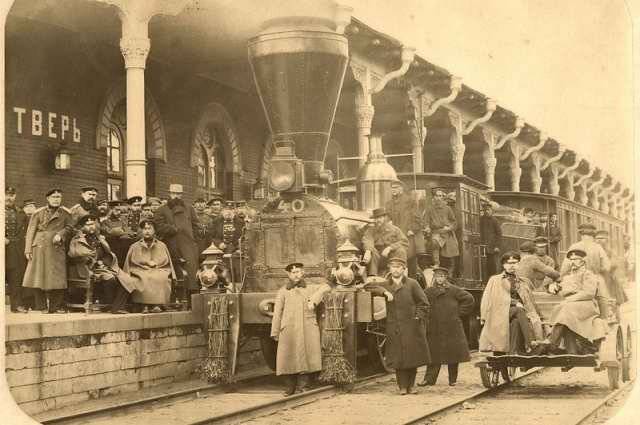
The reaction of society to the opening of railway traffic between St. Petersburg and Moscow was enthusiastic. N. V. Kukolnik wrote the poem “A Passing Song”, which he set to the music of M. I. Glinka (“Our Orthodox people rejoice”). Professor S. Shevyrev, a literary historian and critic, wrote an ode with the words:
Arise, abysses!
Submit to us the earth!
And roll, iron path,
From the Neva to the Kremlin.
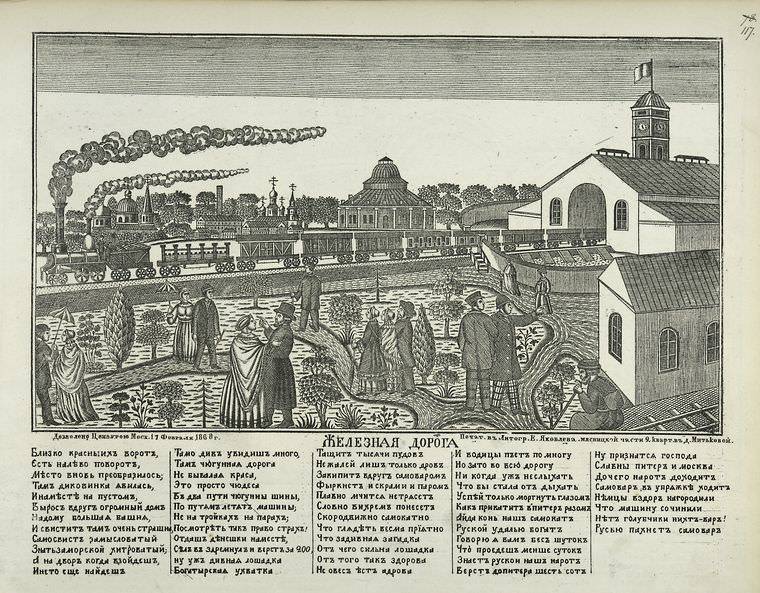
The end of the career of Peter Kleinmichel
With the coming to power of Alexander II, liberals of all stripes became more active. They immediately launched an attack on P. Kleinmichel, who was one of the symbols of the reign of the former emperor.
His opponents judged by themselves and could not even imagine that it was possible not to steal, leading the construction of such a scale. However, all verifications proved the honesty and disinterestedness of Kleinmichel. This did not prevent him from being dismissed from all posts, for decency, retaining only a seat in the State Council.
In 1869, P. Kleinmichel died at the age of 75. He was buried at the cemetery of the Alexander Nevsky Lavra.
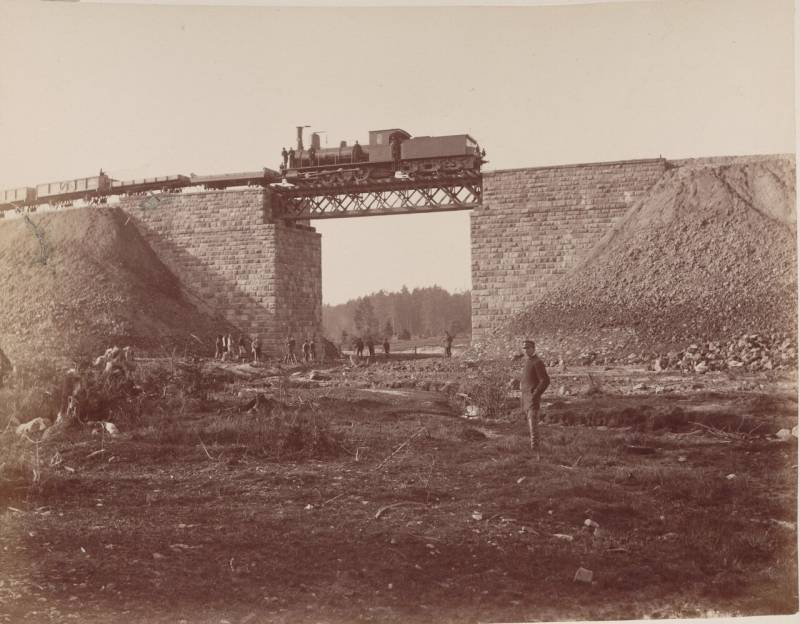
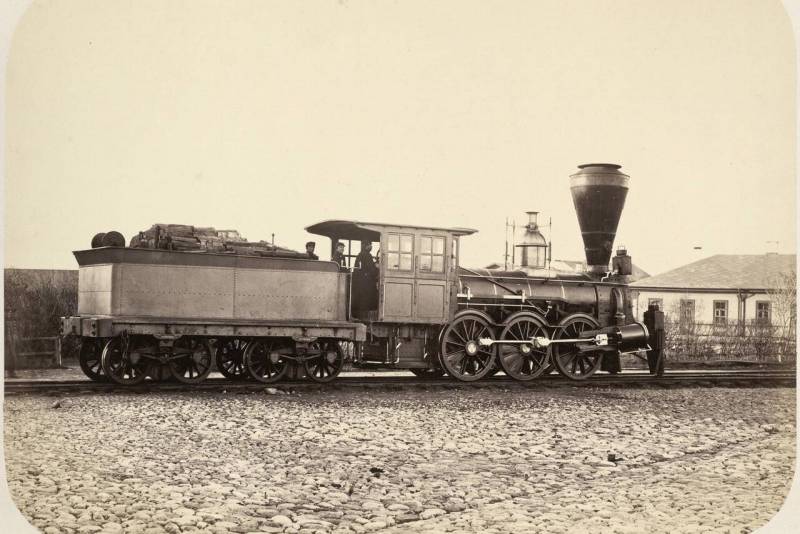
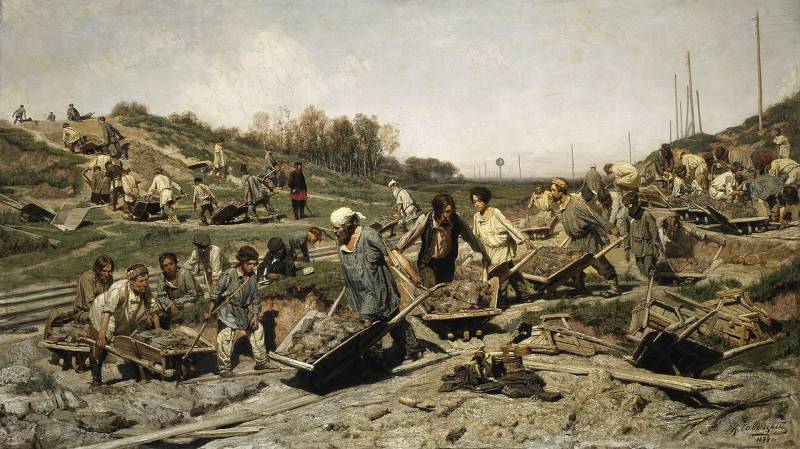
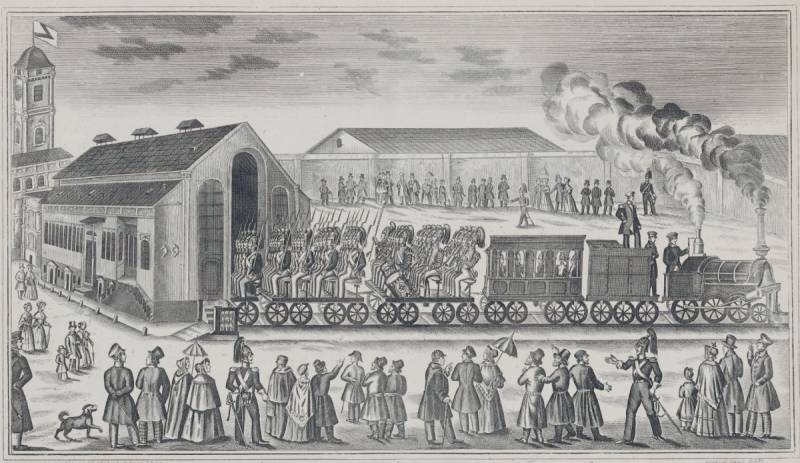
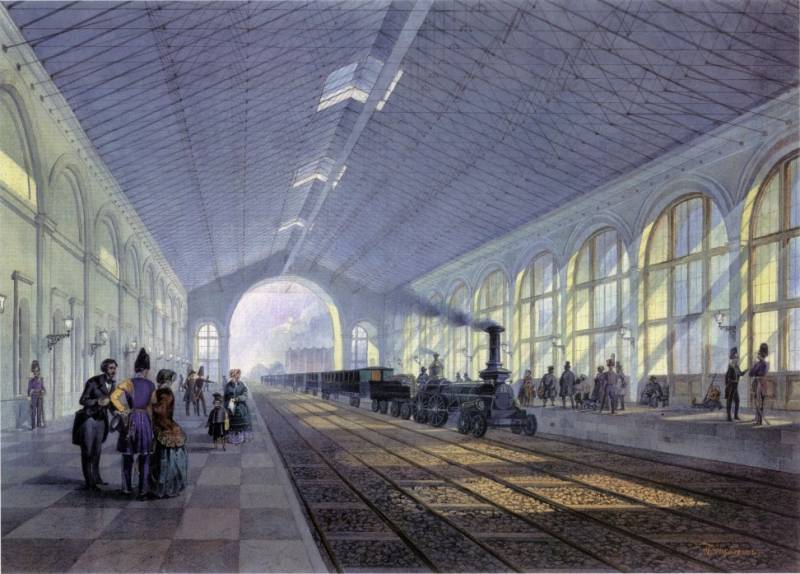
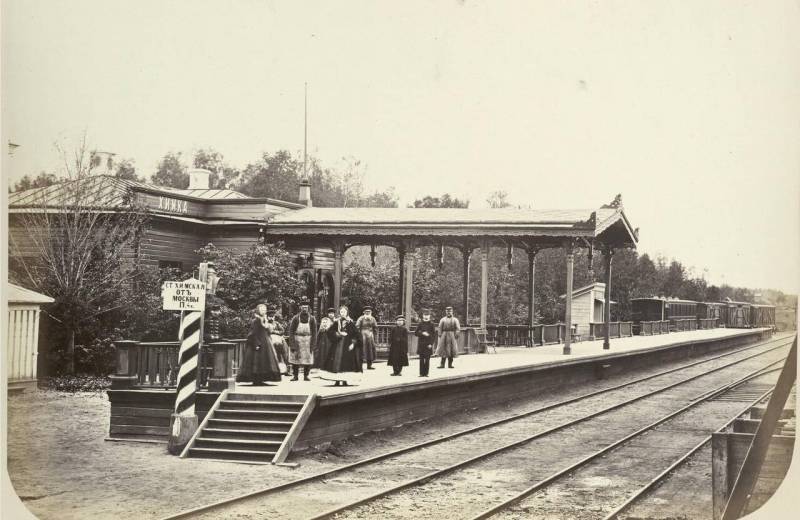
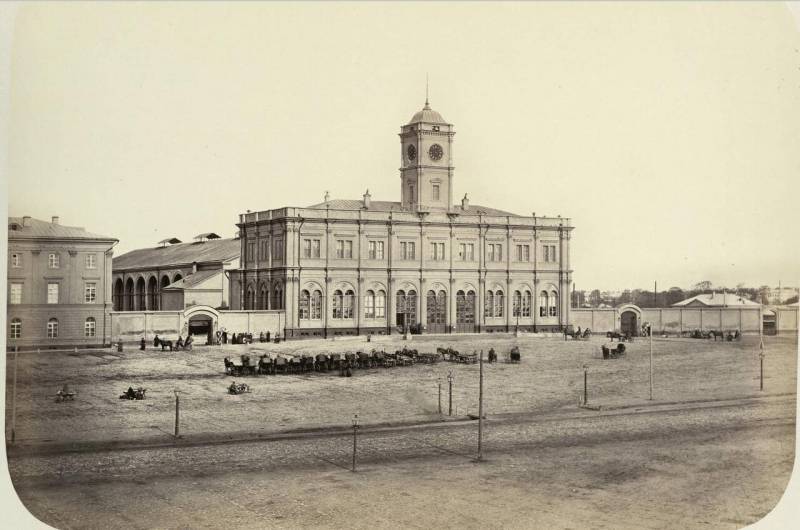
Information